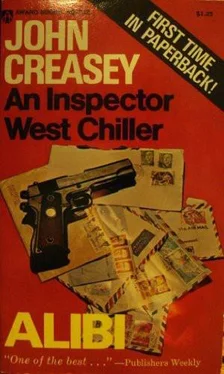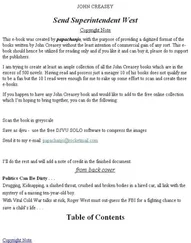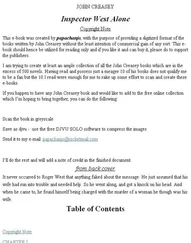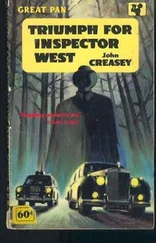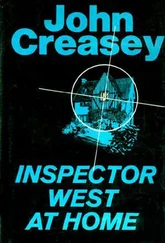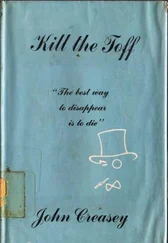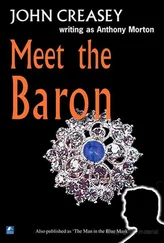John Creasey - Alibi
Здесь есть возможность читать онлайн «John Creasey - Alibi» весь текст электронной книги совершенно бесплатно (целиком полную версию без сокращений). В некоторых случаях можно слушать аудио, скачать через торрент в формате fb2 и присутствует краткое содержание. Жанр: Старинная литература, на русском языке. Описание произведения, (предисловие) а так же отзывы посетителей доступны на портале библиотеки ЛибКат.
- Название:Alibi
- Автор:
- Жанр:
- Год:неизвестен
- ISBN:нет данных
- Рейтинг книги:4 / 5. Голосов: 1
-
Избранное:Добавить в избранное
- Отзывы:
-
Ваша оценка:
- 80
- 1
- 2
- 3
- 4
- 5
Alibi: краткое содержание, описание и аннотация
Предлагаем к чтению аннотацию, описание, краткое содержание или предисловие (зависит от того, что написал сам автор книги «Alibi»). Если вы не нашли необходимую информацию о книге — напишите в комментариях, мы постараемся отыскать её.
Alibi — читать онлайн бесплатно полную книгу (весь текст) целиком
Ниже представлен текст книги, разбитый по страницам. Система сохранения места последней прочитанной страницы, позволяет с удобством читать онлайн бесплатно книгу «Alibi», без необходимости каждый раз заново искать на чём Вы остановились. Поставьте закладку, и сможете в любой момент перейти на страницу, на которой закончили чтение.
Интервал:
Закладка:
“Why, surely,” she gasped. “Of course I will.” She hurried to the pre payment telephone in the hall and glanced round, opening her bag. She kept her head very well and there was only the faintest of quivers in her voice.
It was while she was talking that Roger felt wave after wave of relief surge over him.
Three minutes later, a police car arrived.
“I’ll charge these two men with uttering threats and common assault,” Roger said to the police from the car. “Watch the big one very carefully.”
“Are we to take them to division?” the patrol officer asked.
“Yes,” Roger said. “Then send for a car with a woman officer; there’s a woman upstairs we want to take in — “uttering threats” will do to start with on her. Don’t lose any time, will you?”
“Not a split second, sir,” the other assured him.
In twenty minutes Maisie Dunster was on her way to divisional headquarters in a police car, and the two men were ahead of her. Roger did not follow, but went to the Yard, arriving about ten o’clock. He went straight to his office, nodding right and left but acutely aware of the fact that his arrival was receiving more than the usual attention. There were several messages on his desk, including one reading: Please call the commander. It was timed at nine-five over an hour ago. He put in the call at once and Coppell’s secretary spoke with a note of malice in her voice.
“The commander is very late for a conference, waiting for you.” There was a moment’s pause before Coppell growled, “Come and see me, now. ”
Roger was at the outer office door a few minutes later, glanced at the secretary, who set her lips thinly and led the way to the communicating door. She opened it and Roger went through, to see Coppell putting down a telephone. He glowered up.
“Where the hell have you been?”
For a split second, Roger felt the familiar anger rising, but he couldn’t reasonably blame Coppell for his own mood or his own folly. A phrase came into his head and almost before he realised he was going to utter it, he blurted, “Getting myself in more trouble.”
That stopped even Coppell, whose lips parted—and then closed as he sat back heavily in his chair.
“Come again?”
“I went to search the room of the driver of the car with which our witness Smithson was killed. I made another mistake.” Coppell was still so taken aback that he missed the obvious: “ another ” , and Roger went on, “I took it for granted that it would be empty. Instead, a woman was there, and a couple of bright sparks offered her a hundred quid to take me to bed—at the point of a gun.” Roger paused, then took the pistol out of his pocket. “Here’s the gun,” he said, and placed it in front of Coppell. “It came near to killing me.”
Coppell was staring at him incredulously, and Roger realised that he was gazing particularly at his right cheek.
Almost mechanically, Roger put his hand up to his face, and he touched a sore spot, looked at his fingers and saw a smear of blood.
“So they came as near as that,” Coppell said, no longer angry or growling. “Would you recognise them again?”
“They’re all at division, on a charge,” Roger said flatly.
“Who was with you?” Coppell asked.
Roger thought: Here it comes. It was an effort to answer, “No one.”
Coppell gasped, “You went alone?”
“Yes, sir.”
“Well, no one could ever question your guts whatever they might say about your sense.” Coppell gave a twisted grin which robbed the words of most of their sting. “I have to go and report to the commissioner. If it goes right, this little job might save your bacon.” With a flare of alarm, he asked, “They didn’t get a photograph, did they?”
“No. And I didn’t get into bed,” Roger retorted.
Coppell sniffed back a laugh. “Almost a pity you didn’t,” he rasped. “You really would be the playboy of the Yard, then, wouldn’t you?” He stood up.
Roger answered, straight-faced, “Yes, sir. The woman was Maisie Dunster.”
“Maisie—” Coppell was completely taken aback again. “That witness for Rapelli, you mean? The alibi bedfellow?” There was a hint of a stutter in his voice.
“Yes,” answered Roger.
“And she was in the room of the man who ran down and killed a witness against Rapelli. My God! We’ve got some strings to unravel here,” Coppell declared. “What about our second witness? Don’t let anything happen to him, will you? If you do I’ll have your neck.”
“I’ve taken very good care of him,” Roger said confidently. “He’s the man who wanted Maisie to pop into bed with me while he took some photographs. What did you say about strings to unravel?”
He did not believe that he had ever seen the commander so dumbfounded, utterly bereft of words. It seemed a long time before Coppell began to relax, and as he did so the communicating door opened and his secretary said in a reproving voice, “The commissioner has just called again. He insisted—” She broke off, astounded at Coppell’s expression.
Very slowly the commander of the Criminal Investigations Department stood up. He rounded his desk and was halfway to the door before he turned round, saying gruffly, “Better come with me, Handsome. The commissioner had better hear this straight from the horse’s mouth.”
Chapter Eight
DISAPPROVAL
The commissioner of the Metropolitan Police, Sir Jacob Trevillion, was a big, bucolic man, ex-navy, with a manner too often faintly reminiscent of a drill-sergeant. He had a saving sense of humour, his bark being always worse than his bite, and he overlooked a great many errors provided rules and regulations were strictly observed. Entering his office, these things passed through Roger’s mind and he even wondered whether Coppell could have brought him along here on the “it’s time West was taught a lesson” principle. He had never met this man face to face over Yard business, only on official and social occasions, and he felt a sharp sense of trepidation.
In front of the commissioner was a copy of last night’s Globe.
He was frowning; and after a swift glance towards them he put the newspaper to one side and shuffled through some papers. Roger saw that amongst them were some of his own and some of Coppell’s reports on the Rapelli case.
The commissioner kept them standing just long enough to make Roger begin to fret, then looked up once more.
“Ah, commander. Have a seat. Superintendent—I think you have some explanations to make.”
Roger said in a flat voice, “About what, sir?”
“About your grave error of judgment when you asked a question in court yesterday.”
Roger kept silent.
“Well?” the commissioner barked.
“I don’t really think I committed an “error of judgment, sir.”
“You don’t what ! When this—” the commissioner placed a fist on the Globe “—so severely takes you and the Yard to task!”
“I know I asked for trouble, sir, but it was an odd situation, and got out of hand. I felt it essential to establish the character of the witness who really shouldn’t have been allowed to testify. Thanks to some very clever tactics by her counsel, she was being allowed to give evidence that she had been in bed with a man accused of a serious crime, at the time of the crime. If it ever came to trial, as I would expect, this evidence would be on record. I did take a chance, sir, in establishing her character—”
“That’s enough, Superintendent.”
“Sir.”
“You’ve been in the service long enough to know the elementary rules, haven’t you?” The sarcasm almost dripped.
Читать дальшеИнтервал:
Закладка:
Похожие книги на «Alibi»
Представляем Вашему вниманию похожие книги на «Alibi» списком для выбора. Мы отобрали схожую по названию и смыслу литературу в надежде предоставить читателям больше вариантов отыскать новые, интересные, ещё непрочитанные произведения.
Обсуждение, отзывы о книге «Alibi» и просто собственные мнения читателей. Оставьте ваши комментарии, напишите, что Вы думаете о произведении, его смысле или главных героях. Укажите что конкретно понравилось, а что нет, и почему Вы так считаете.
